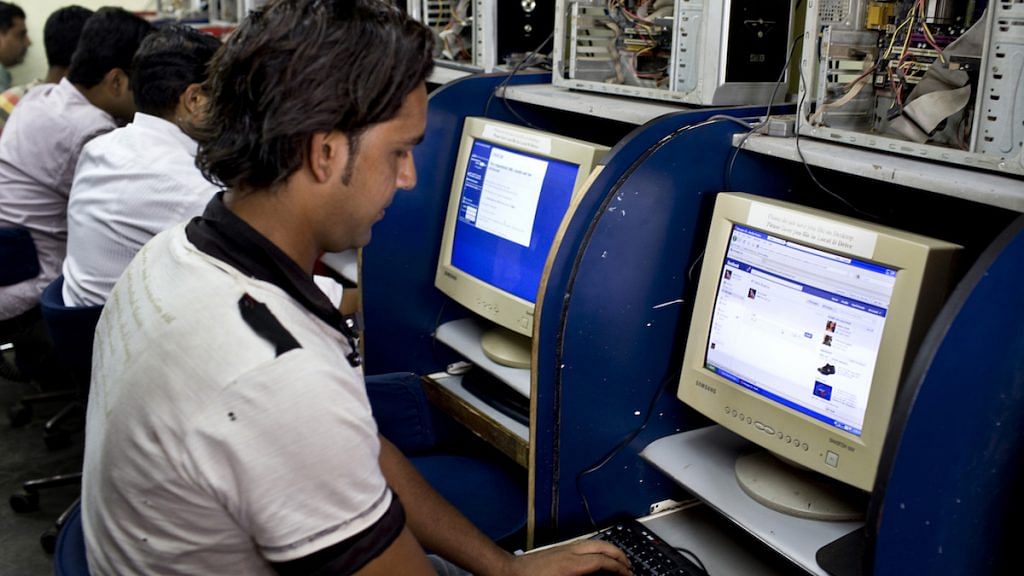New Delhi: The Telecom Regulatory Authority of India (TRAI) has issued a consultation paper seeking answers from stakeholders on how to improve India’s internet broadband speed and how to increase its adoption among Indians.
“In the post pandemic era, like potable water and electricity, access to broadband would become a necessity”, the paper dated 20 August said, adding that “broadband would become a fundamental human right”.
It further said due to the increasingly essential nature of broadband, the government is working on extending connectivity across the country, even in areas where it may not be profitable to do so.
“The government has decided to provide voice and data connectivity in 361 identified villages in Ladakh and Kargil region,” said the TRAI paper, citing it as an example of government initiatives to “provide telecom connectivity in the unserved or underserved areas, which are commercially non-remunerative”.
Also read: ‘We are open & non-partisan, know work on hate speech is never over’ — Facebook India head
‘How can we improve internet speed?’
The consultation paper then sought answers from stakeholders on how India’s broadband speed can be improved.
“What could be the probable reasons for slower mobile broadband speeds in India, especially when the underlying technology and equipment being used for mobile networks are similar across the world?”
The TRAI paper also wondered whether this slow speed may be due to how parts of the telecom network have been designed, especially the aspect known as the Radio Access Network (RAN).
RAN is a part of the telecom network that connects a consumer’s device like a mobile phone with the core part of the telecom network.
Citing the Ookla speed test global index June 2020 report, the TRAI paper said Indian users experience mobile broadband speed of 12.16 Mbps. The Ookla global index ranks India at 129 among 138 nations for mobile broadband speed. The fastest mobile broadband speed was recorded in South Korea and is around 100 Mbps.
Also read: Denounce ‘anti-Muslim bigotry’ — Facebook staff in US, other countries write to company
‘Need to improve internet penetration’
The TRAI paper also said at least 40 per cent of Indian users still don’t appear to access data services.
This is despite India having the cheapest and most affordable mobile data in the world.
The paper sought feedback on how to increase mobile broadband penetration.
“Even though mobile broadband services are easily available and accessible, what could be the probable reasons that approximately 40 per cent of total mobile subscribers do not access data services?” it asked. “Kindly suggest the policy and regulatory measures, which could facilitate increase in mobile broadband penetration.”
The paper said there were 667.66 million mobile broadband subscribers in India at the end of March 2020. India’s total mobile subscriber base is around 1.1 billion.
Also read: Internet shutdowns, pandemic have cost Kashmir Rs 40,000 cr, 5 lakh jobs, says industry head
Neglect of fixed broadband
The TRAI paper also sought to understand why fixed broadband (high speed internet typically delivered through a wire to a home or office) has not seen much adoption despite its benefits.
“Even though fixed broadband services are more reliable and capable of delivering higher speeds, why is its subscription rate so poor in India?”
The paper indicated “only 7.6 per 100 households have access to fixed line broadband”.
India’s fixed broadband speed is around three times faster than mobile broadband speed, according to the Ookla report, which said India’s fixed broadband speed is around 38.19 Mbps.
In addition, the paper showed the importance of increasing broadband adoption since “broadband policies aimed at economic development focus more on improving fixed broadband penetration”.
Also read: Don’t get too close to colleagues in office. AI snoops are here to ensure social distancing
